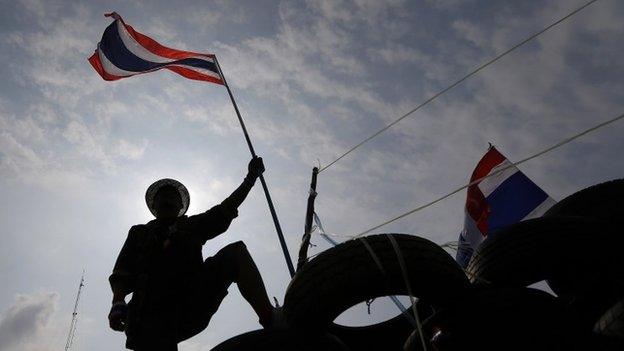Thai referendum: Military-written constitution approved
- Published
Thailand referendum: End to political turmoil or boost to military power?
A clear majority of Thai referendum voters have backed a draft constitution written by an army-appointed committee.
Unofficial tallies show that 61.45% voted in favour.
The military threw out the old constitution when it took power in 2014, after months of political instability and sporadic violence.
Supporters of the new document say it will restore stability, but critics say it will entrench military control.
Voters also supported a second measure on the ballot, which proposes that the appointed senate should be involved in selecting a prime minister.
Turnout was about 55%, the election commission said - well below its target figure of 80%.
Campaigning against the draft in the run-up to the referendum was banned and dozens of people were detained. Thailand's biggest political parties rejected the constitution.
About 200,000 police officers were deployed to maintain order and there were no reports of protests.
Independent observer groups had requested accreditation to monitor the vote, but this was not granted by the election commission.

A 'guided' democracy: Analysis by Jonathan Head, Bangkok

The military government took a gamble in holding this referendum. Its performance in the two years since it seized power has been muddled, the economy is in poor shape and the government it ousted was led by a popular party which had won every election held in the past 15 years.
The gamble paid off. Despite strong warnings from human rights groups and prominent politicians about the undemocratic character of the new constitution, a clear majority of those who voted approved it.
But turnout was low, and the repressive climate which preceded the referendum, when campaigning against the charter was banned, will undermine the legitimacy of the result for many Thais.
The military now plans to hold a general election by the end of next year. Under the new voting system, this is likely to produce a weak coalition administration. And a wholly-appointed Senate and other unelected bodies will be given a decisive say over Thai politics, in what might best be described as a guided democracy.

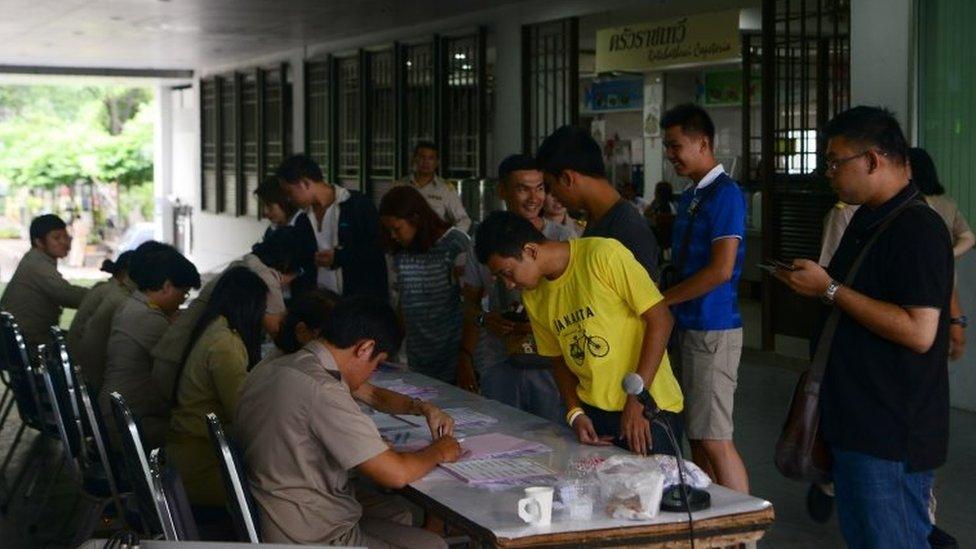
Voters checked their names on registration lists before casting their ballots
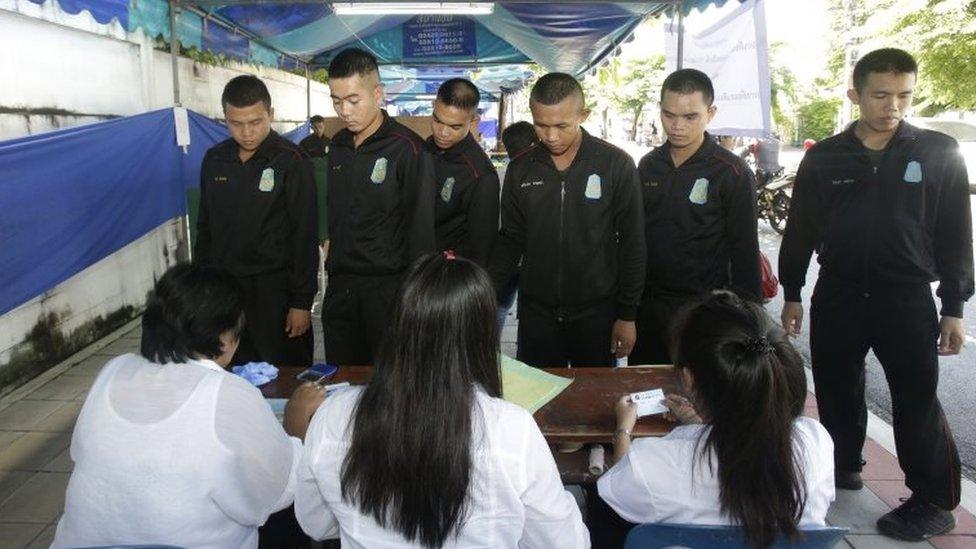
Thai soldiers were also seen queuing up to vote in the capital
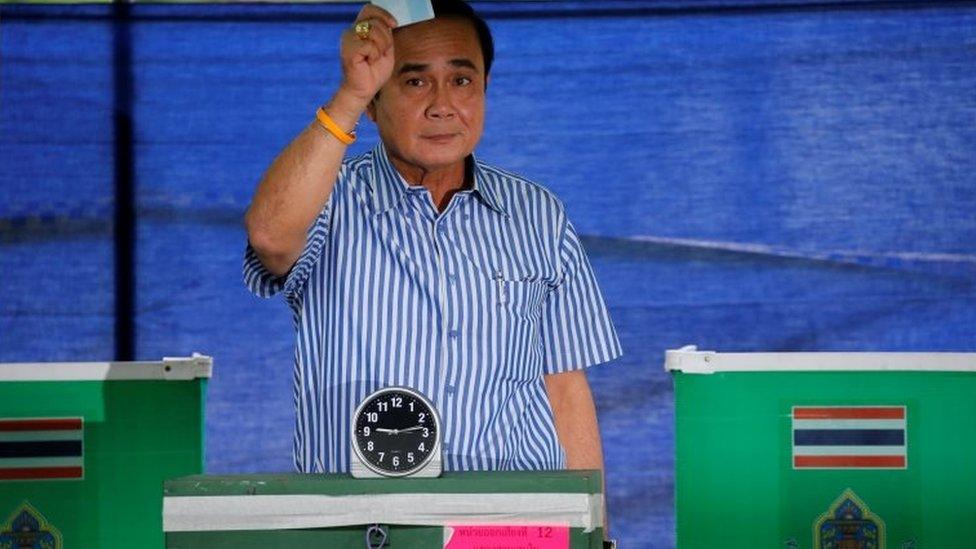
Prime Minister Prayuth Chan-ocha was one of the early voters in Bangkok
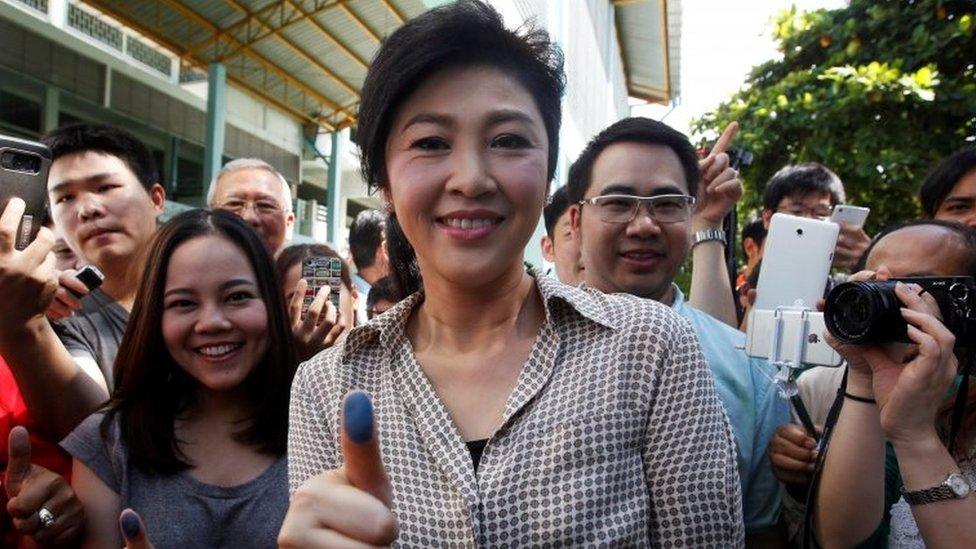
... as was former PM Yingluck Shinawatra (centre), who showed her inked finger after casting her ballot
What were Thais voting on?
The 50 million eligible voters were asked to answer yes or no to the question: Do you accept the draft constitution? They were also asked a supplementary question, whether or not the appointed senate should be allowed to join the lower house in selecting a prime minister.
The draft will now become the constitution, enhancing the military government's legitimacy in the run-up to an election which Mr Prayuth, who led the 2014 coup, has promised will happen next year.
What are the key changes?
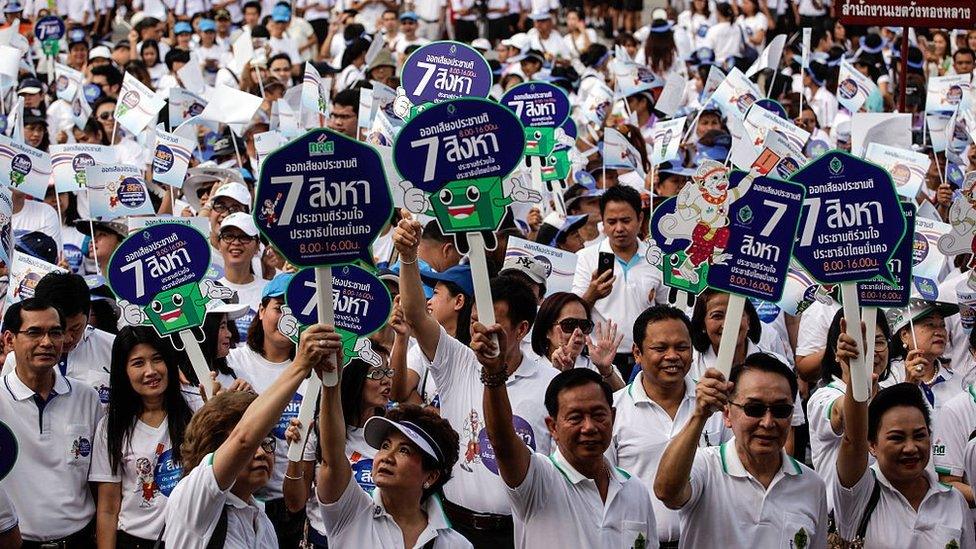
There have been several events held to promote the referendum by the government
The military argues that corrupt politicians are to blame for the last decade of instability and divisive politics.
Made public in March, the draft proposes a voting system which would make it difficult for a single political party to win a majority of seats in the lower house.
One of the most controversial clauses calls for the 250-seat senate to be fully appointed by the military government.
Before the coup, just over half of the upper house seats were directly elected and the rest were appointed.
The change means military-appointed lawmakers will have a decisive say in the likely event that no party holds a majority in the lower house, or National Assembly of Thailand.
Why is this happening?
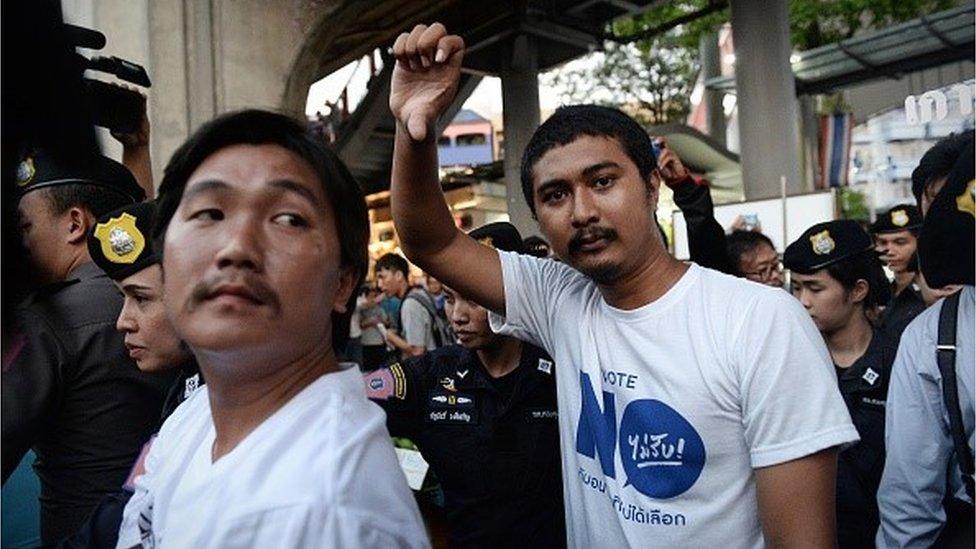
Meanwhile, those deemed to be violating the Referendum Act have been charged and face prison if convicted
Thailand has had more than a decade of fractured politics and instability that has sometimes spilled over into violence.
In this time, parties linked to former Prime Minister Thaksin Shinawatra have won every election, but their governments have all been ousted either by court rulings or military coups.
Mr Thaksin fled into self-imposed exile in 2008 to escape a criminal charge of abusing his power, for which he was later convicted in absentia.
His sister, Yingluck Shinawatra, became prime minister in 2011 but was forced to resign by the Constitutional Court just days before the military took power. She was banned from politics for five years in January 2015 after a military-appointed court found her guilty of mismanaging a rice scheme.
"I'm happy that I could still exercise my rights as a [Thai] person," she said, after voting on Sunday.
- Published5 August 2016
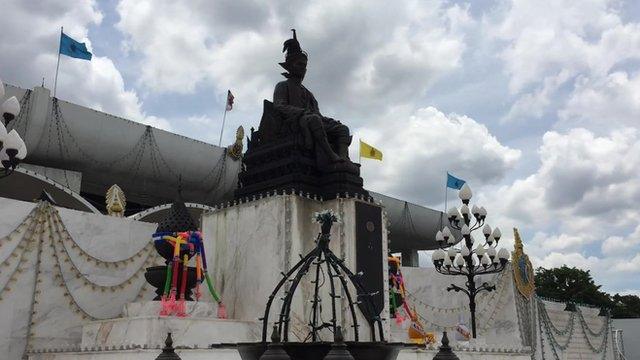
- Published19 May 2015
